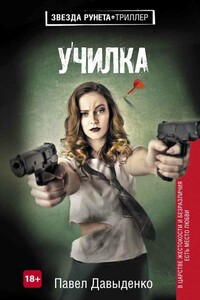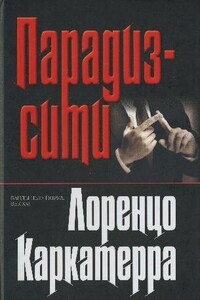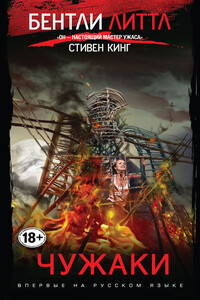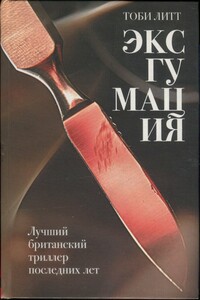Spider in the Corner of the Room - [9]
His smile drops. ‘Thank you.’ He immediately writes some notes. The air blows cold and I feel strangely unsteady. Why am I uncomfortable with this man? It’s as if he could be a friend to me one minute, a dangerous foe the next. And then it comes to me.
‘Your name!’ I say, pleased with myself. ‘I do not know your name. What is it?’
His pen hovers mid-air, an unexpected slice of a scowl lingering on his lips. ‘I think you know it, Maria.’
I shake my head. ‘No. The service could not tell me who would be here today as it was a last-minute appointment.’
‘I think you are mistaken, Maria, but I’ll tell you. Again. It’s Kurt. My name is Kurt.’
Kurt. I had not been told. I am certain of this. Certain. I knew the meeting would be with one of their staff, of course. The service issued a date, a time, place. But as it was a late booking, interviewer names were unconfirmed. They said that. They did. My memory is not lying. I did not want to do it at first, to be here, but he said it would do me good. I wanted to believe him. But, after everything that has happened, it is hard to trust anyone any more.
A knock sounds on the door and a woman enters. Leather jacket, bobbed brown head of hair. She glances at Kurt and sets down a tray of coffee.
‘Who are you?’ I demand. When she does not reply, I say, ‘I did not order coffee.’
Continuing to ignore me, the woman nods to Kurt and leaves. He reaches forward and picks up a mug. ‘Smells great.’
‘Who was she?’ But Kurt does not answer. ‘Tell me!’
He inhales the steam, the scent of ground coffee beans circling the room. He takes a sip and sighs. ‘Damn fine coffee.’
My body feels suddenly drained, my legs tired, my head fuzzy, my brain matter congealed like thick, cold stew. Hesitating, I slowly reach for a cup. The warmth of the coffee vapour instantly rises to my face, stroking my skin. I take a small mouthful.
‘Good?’
The hot liquid begins to thaw me, energise me. I drink a little more then lower the cup. ‘Your name. It is Kurt.’
He nods, the cup handle linked like a ring to his finger.
‘Kurt is a German name, no?’
‘Yes,’ he says. ‘I believe it is German.’
‘In German, Kurt means “courageous advice”. In English, it means “bold counsel”.’
‘I read you liked names. Like writing everything in your notebook, the names are an obsession. It’s a common trait on the spectrum. Your memory, your ability to retain information,’ he says, sitting back, ‘is that the Asperger’s or something else?’
I go still. Why would he ask me this? Does he know? ‘What else would it be?’ I say after two seconds.
‘You tell me.’
‘Why would you ask what else it would be?’ I can feel a panic rising. I try taking more coffee and it helps a little, but not much.
‘You know it is normal for me to enquire about your Asperger’s, about how you can do what you do? I am a therapist. It is my job.’
I look at him and my shoulders drop. I’m tired. Maybe I am inventing a non-existent connection here, conjuring thoughts and conclusions like a magician, plucking them from the air. How would he know what we discovered? The answer is he can’t know, so I need to be calm. I drain my coffee and try to concentrate on facts, on solid information to clear my fog.
‘What is your family name?’ I say.
‘You mean surname?’ Kurt shakes his head. ‘I’m sorry, Maria, I cannot say. Company policy.’
‘You are lying.’ I set the cup down on the table.
He sighs. ‘I do not lie.’
‘Everybody lies.’
‘Except you, correct? Isn’t that what you would say, Maria? I have seen your file, read your details.’ He smiles. ‘I know all about you.’
We both remain very still. Kurt’s eyes are narrowed, but I cannot determine what it means. All I know is that I have a tightening knot in my stomach that will not subside, with a voice in my head telling me again to run.
‘I have it in my notes,’ he says after a moment, ‘that following your blackout in segregation, you received help.’
‘Yes,’ I say quietly, the recollection of that day painful for me to think about. The room feels suddenly warm. I undo two buttons on my blouse, followed by a third; the fabric flaps against my skin in the morning breeze. I exhale, try to relax.
Kurt coughs.
‘What?’ I follow his eyeline. My chest. I can see the cotton of my bra.
‘Nothing.’ Another cough. ‘Maria, can you…can you tell me what help you received following your blackout in segregation?’
I pause. I know now exactly who tried to help me. And why. ‘A psychiatrist came to the segregation cell.’
He hits record. ‘I want you to tell me about that.’
He stares at me for three seconds. I rebutton my blouse.
Day must now be night because above my head the strobe lights hum, making me blink over and over, like staring straight at the sun.
I fall back, try to think, but my body throbs, my muscles and skin a sinew of stress. The signs. Normally I recognise them, can quell them, control them, but in here I cannot get a handle on myself, on my thoughts. I force my eyes shut and make myself think of my father. My safe place, my hideout. I inhale, try to imagine the soft apples of his cheeks, how his eyes would crinkle into a smile when he saw me, how he would sweep me into his arms, strong, secure. I open my eyes. My pulse is lowered, my breathing steady, but it is not enough. I need to think. If I remain in segregation I may not survive for long. I have to get out. But how?

Любовь и ненависть, дружба и предательство, боль и ярость – сквозь призму взгляда Артура Давыдова, ученика 9-го «А» трудной 75-й школы. Все ли смогут пройти ужасы взросления? Сколько продержится новая училка?

Вот уже почти двадцать лет Джанкарло Ло Манто — полицейский из Неаполя — личный враг мафиозной семьи Росси. Он нанес ей миллионный ущерб, не раз уходил от наемных убийц и, словно заговоренный, не боясь смерти, снова бросался в бой. Потому что его война с мафией — это не просто служебный долг, это возмездие за убийство отца, друзей, всех тех, кто не захотел покориться и жить по законам преступного мира. Теперь Ло Манто предстоит вернуться в Нью-Йорк, город его детства, город его памяти, для последнего решающего поединка.

Во время разгульного отдыха на знаменитом фестивале в пустыне «Горящий человек» у Гэри пропала девушка. Будто ее никогда и не существовало: исчезли все профили в социальных сетях и все офи-циальные записи, родительский дом абсолютно пуст. Единственной зацепкой становятся странные артефакты – свитки с молитвами о защите от неких Чужаков. Когда пораженного содержанием свитков парня похищают неизвестные, он решает, что это Чужаки пришли за ним. Но ему предстоит сделать страшное открытие: Чужак – он сам…

Я — чистый холст, и даже художник во мне не знает, чем его заполнить. Моя жизнь началась в тот день, когда я сбежала и очнулась в больнице. Сбежала от реальности. Сбежала от страха. Сбежала от Него. До этого момента ничего не существовало, и я уверена, что, с такой быстротечностью дней, впереди меня тоже ничего не ждет. Но я стараюсь. Пытаюсь жить для дедули, который не покидает меня с тех пор, как я проснулась. Но все попытки бесполезны. Я вновь сбегаю, чтобы начать новую жизнь на небольшом острове, где не нужно оправдывать ничьи ожидания.

«Эксгумация» — превосходный психологический триллер одного из наиболее ярких представителей современной британской прозы. Роман, написанный Тоби Литтом в 2000 году, стал бестселлером в Великобритании и многих других странах. Главный герой книги, Конрад, подвергается нападению киллера в момент встречи со своей подругой-моделью Лили в фешенебельном лондонском ресторане. Лили погибает, сам Конрад оказывается в коме. Как только силы возвращаются к нему, он, с умением искушенного опытом детектива, начинает свое собственное расследование.

Найджел, Гарольд и Карма – обычные люди. Такие же, как мы с вами. Но кто сказал, что «обычные люди» не могут стать образцом настоящего насилия? Нью-Йорк. 2017-й год. Лучшее время и место для того, чтобы жить счастливо. Но они не могут. И у каждого на это своя причина: одиночество, зависть, неразделенная любовь.. Думаете, что вы никогда не переступите черту? Они тоже так думали. Но у жизни на нас свои планы.